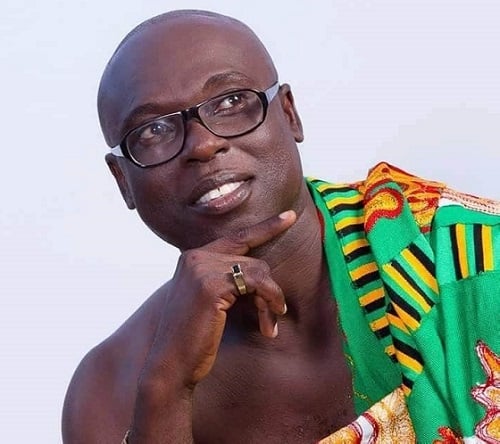ACP Kofi Sarpong, a renowned Ghanaian gospel artist, has expressed his openness to collaborating with secular musicians, a stance that challenges the traditional divide often perceived within the music industry. Sarpong believes that music, in its essence, is a universal language, a blend of words and rhythms that reflect the diverse tapestry of human experiences, including proverbs, advice, and motivation. He views this shared foundation as a bridge between gospel and secular music, arguing against a rigid separation. For him, the potential for collaboration lies in the shared human experience captured in music, regardless of genre labels. He acknowledges that while some secular songs may be seen as worldly, the inherent musicality, the compelling beats and rhythms, can be undeniable and even uplifting.
Sarpong’s perspective contrasts with a prevailing sentiment within the gospel music community that often criticizes collaborations with secular artists. This criticism stems from a concern that such partnerships might dilute the spiritual message of gospel music or compromise the artist’s religious standing. Several gospel artists in Ghana, including Herty Borngreat, Yaw Sarpong, Gifty Adorye, Joyce Blessing, and MOG, have faced backlash for featuring secular artists in their music. This highlights the ongoing debate within the gospel music scene regarding the boundaries of collaboration and the perceived conflict between spiritual integrity and artistic expression. Sarpong’s willingness to cross these perceived boundaries positions him as a progressive voice within the gospel music community.
Sarpong’s view on collaboration extends beyond mere musicality; it encompasses a broader philosophy of engagement and understanding. He rejects the notion of stereotyping secular artists as solely “of the world.” Instead, he sees them as individuals with their own experiences and perspectives, individuals who can be reached through music and potentially even drawn closer to the gospel message. This inclusive approach aligns with a more contemporary understanding of evangelism that prioritizes dialogue and connection over judgment and exclusion. He believes in the power of music to bridge divides and foster understanding, rather than reinforcing separation and prejudice.
While acknowledging the validity of opposing viewpoints within the gospel community, Sarpong emphasizes his personal conviction to not judge others based on their musical preferences or affiliations. He respects the reservations some may have about collaborations with secular artists but maintains his own position, emphasizing the potential for positive impact, particularly on the youth. He envisions collaborations that inspire and motivate, believing that music can be a powerful force for good, regardless of genre. This focus on the potential for positive influence underscores his commitment to using his platform to uplift and encourage others.
For Sarpong, the decision to collaborate with a secular artist hinges not solely on their musical style but also on the lyrical content of the potential project. He recognizes the importance of maintaining the integrity of his message while also embracing the opportunity to reach a wider audience. This pragmatic approach allows him to navigate the complexities of collaboration, balancing his artistic aspirations with his commitment to his faith. He seeks partnerships that align with his core values and contribute to a positive and uplifting musical experience for listeners.
In essence, ACP Kofi Sarpong’s perspective on collaborating with secular artists reflects a broader shift in understanding the role of music and its potential to transcend traditional boundaries. He advocates for a more inclusive and engaging approach to music ministry, emphasizing the shared human experience that unites artists and listeners across genres. His willingness to collaborate with secular artists stems not from a disregard for his faith but from a deep belief in the power of music to connect, inspire, and ultimately, spread a message of hope and positivity. He exemplifies a modern gospel artist who is both grounded in his faith and open to exploring new avenues for creative expression and outreach. His stance challenges conventional notions of separation within the music industry, promoting a more unified and collaborative approach to making music.


